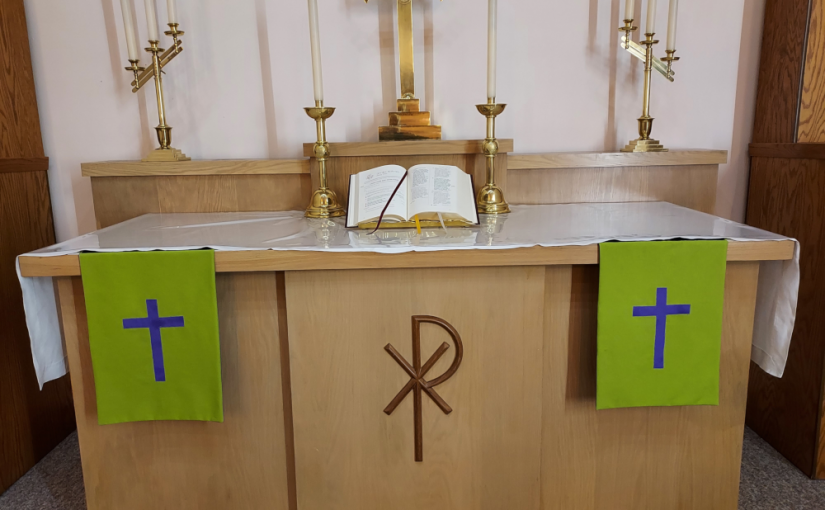This coming Sunday marks the beginning of the three-week pre-Lent season. The liturgical preparation for Easter takes place through three stages.
Stage One: Gesima Sundays
It begins with the ”Gesima” Sundays. These three Sundays before Ash Wednesday provide an opportunity to study the Grace of God in which graceis explained in three different ways.
Septuagesima: This Sunday is about 70 days before Easter, which is the meaning of the Latin name. The focus of this Sunday – Grace is undeserved. The Collect for this Sunday implores God to graciously hear us, who are justly punished for our sin, so that we may be delivered by God’s goodness. The goodness of God is emphasized in the parable (Matthew 20:1-16) where all the laborers receive the reward because of the goodness of the land owner. So we, too, receive the reward of eternal life because
God is good.
Sexagesima: This Sunday is about 60 days before Easter. The focus of this Sunday – Grace is passively received. In the Collect we pray to the God who sees that we put not our trust in anything we do, but mercifully defends us by His power. In the parable of the sower, the seed of God’s Word is passively received in good and noble hearts.
Quinquagesima: This Sunday is about 50 days before Easter. The focus of this Sunday – Grace is not easily understood. In the Gospel Jesus predicts His passion and the disciples ”understood none of these things. This saying was hidden from them, and they did not grasp what was said.” (Luke 18:34)
The three ”Gesima” Sundays begin the Lenten preparation for Easter. They take on the character of Lent, but mildly. The color remains green, the color of the Epiphany season. No more do we sing the Alleluia. Crosses remain unveiled, and flowers may adorn the chancel. In this pre-Lent season we gradually remove portions of the liturgy as we approach Christ’s passion.
Stage Two: Ash Wednesday through Laetare
The second step of Lent begins on Ash Wednesday, and ends when the week of Laetare (Fourth Sunday in Lent) is completed. In addition to the liturgical changes that began in the Gesima weeks, flowers no longer adorn the chancel, and the crucifix and crosses are veiled. During these four Sundays the focus is on temptation, faith, and the Christian struggle. The names of the Sundays are drawn from the first word of the Introit.
Invocabit: Jesus is tempted in the wilderness.
Reminiscere: The faith of the Canaanite woman is tested.
Oculi: The people tempt Jesus to show them a sign from heaven.
Laetare: This Sunday has a lighter mood to as we learn how Jesus provides for His people. Traditionally this Sunday uses rose colored paraments, unlike the other Sundays in Lent.
Stage Three: Passiontide
The final stage is Passiontide which begins with Judica Sunday (Passion Sunday or the Fifth Sunday in Lent) and extends through Holy Week and the Triduum or three Holy days of Maundy Thursday, Good Friday, and Holy Saturday. Now the focus is expressly on our Lord’s passion. The liturgy is spoken on Judica Sunday to emphasize the intense passion which our Lord endured. This intensity builds until we finally arrive at the empty tomb.
